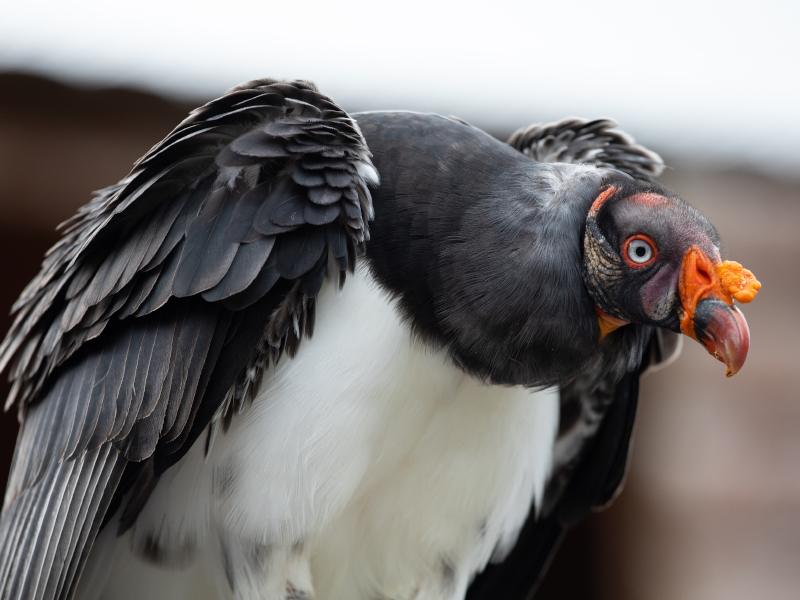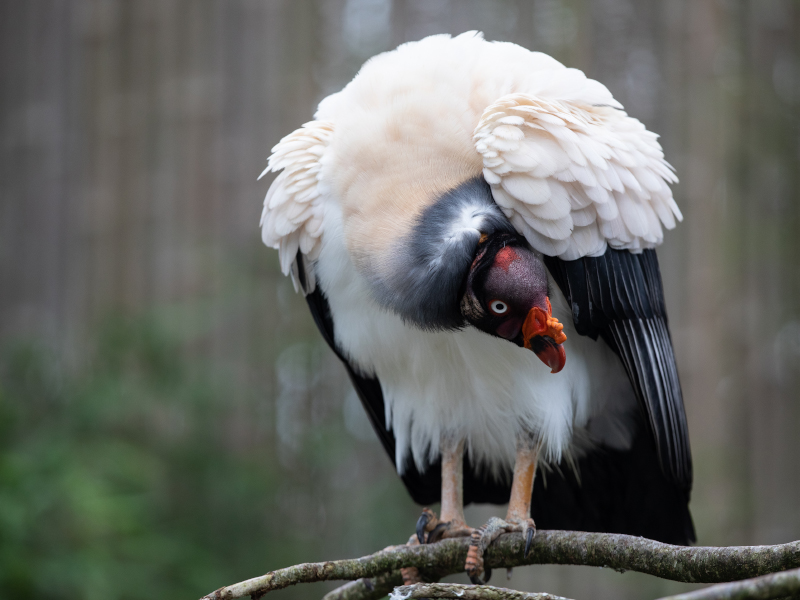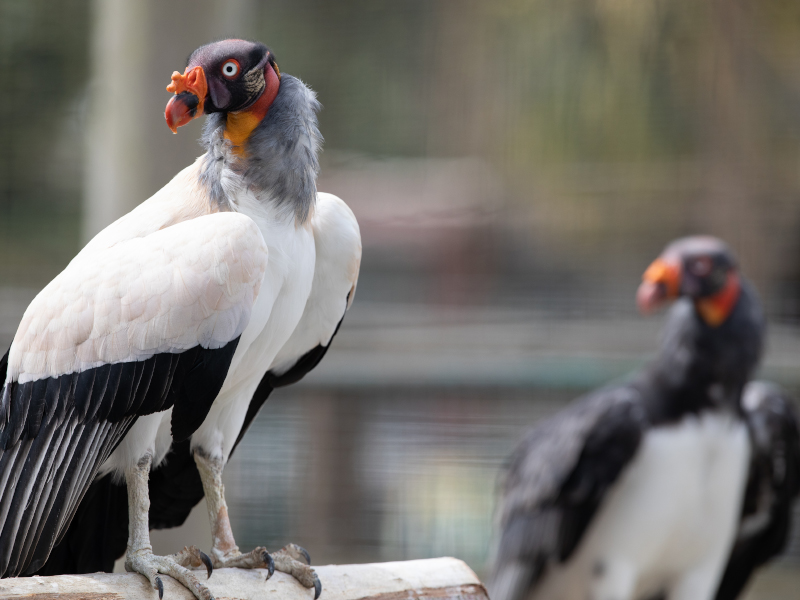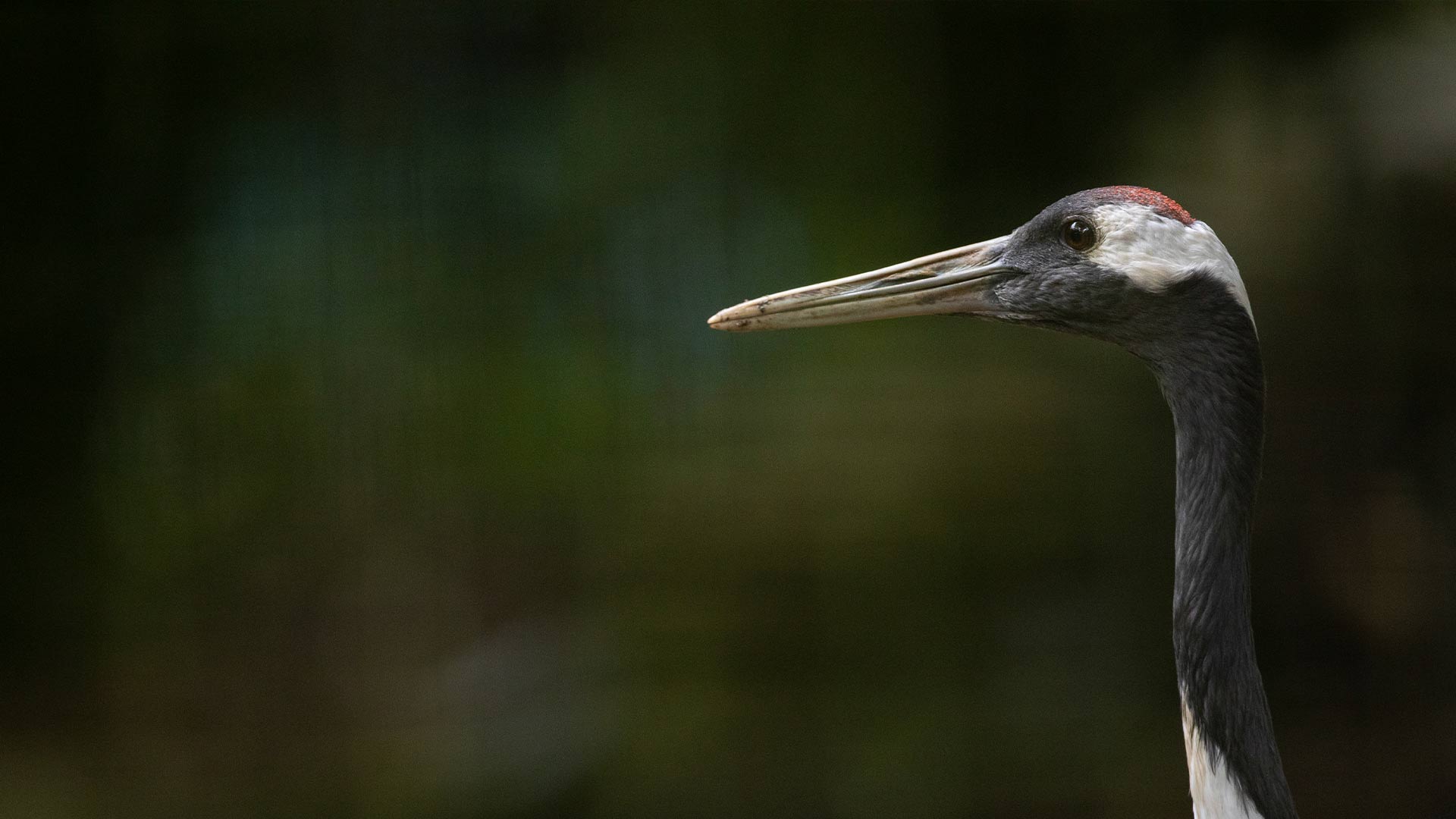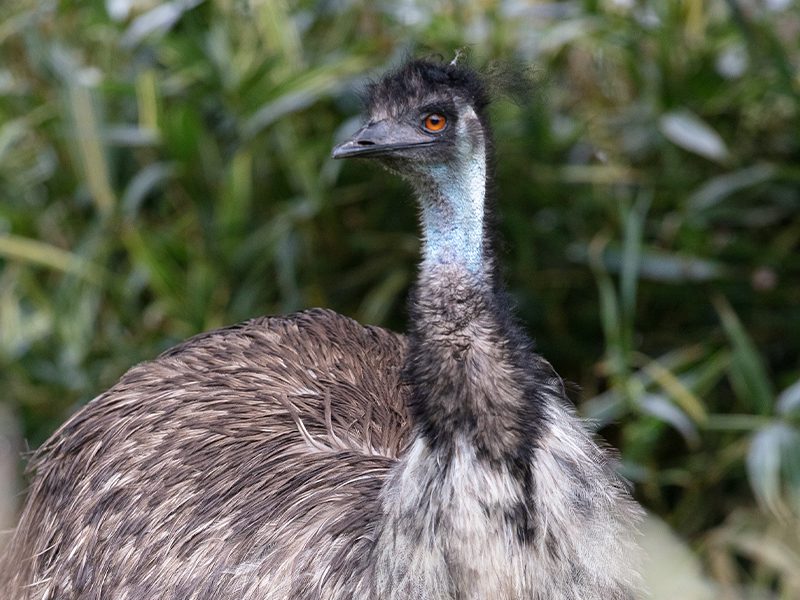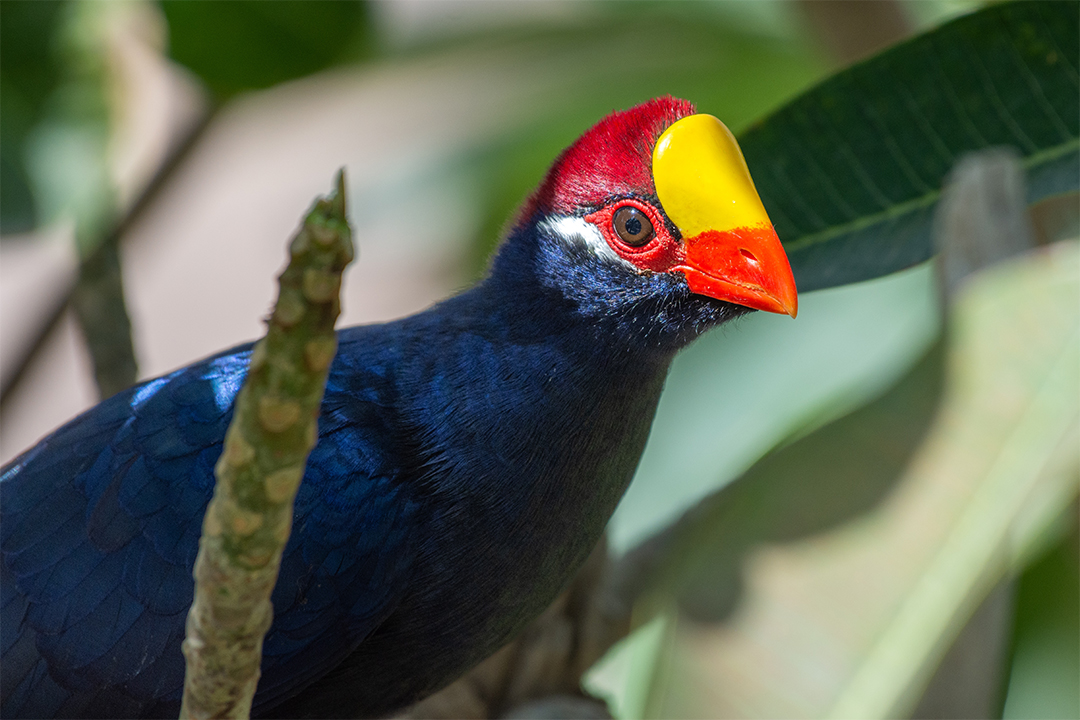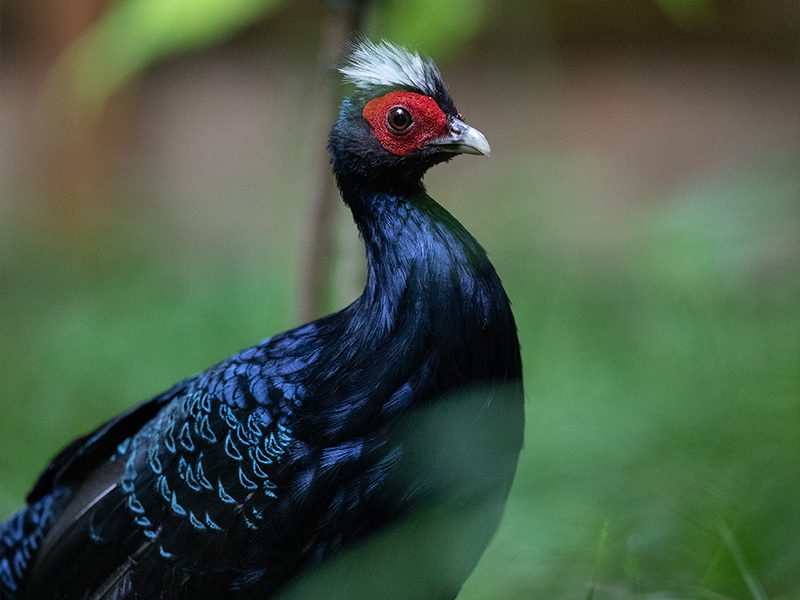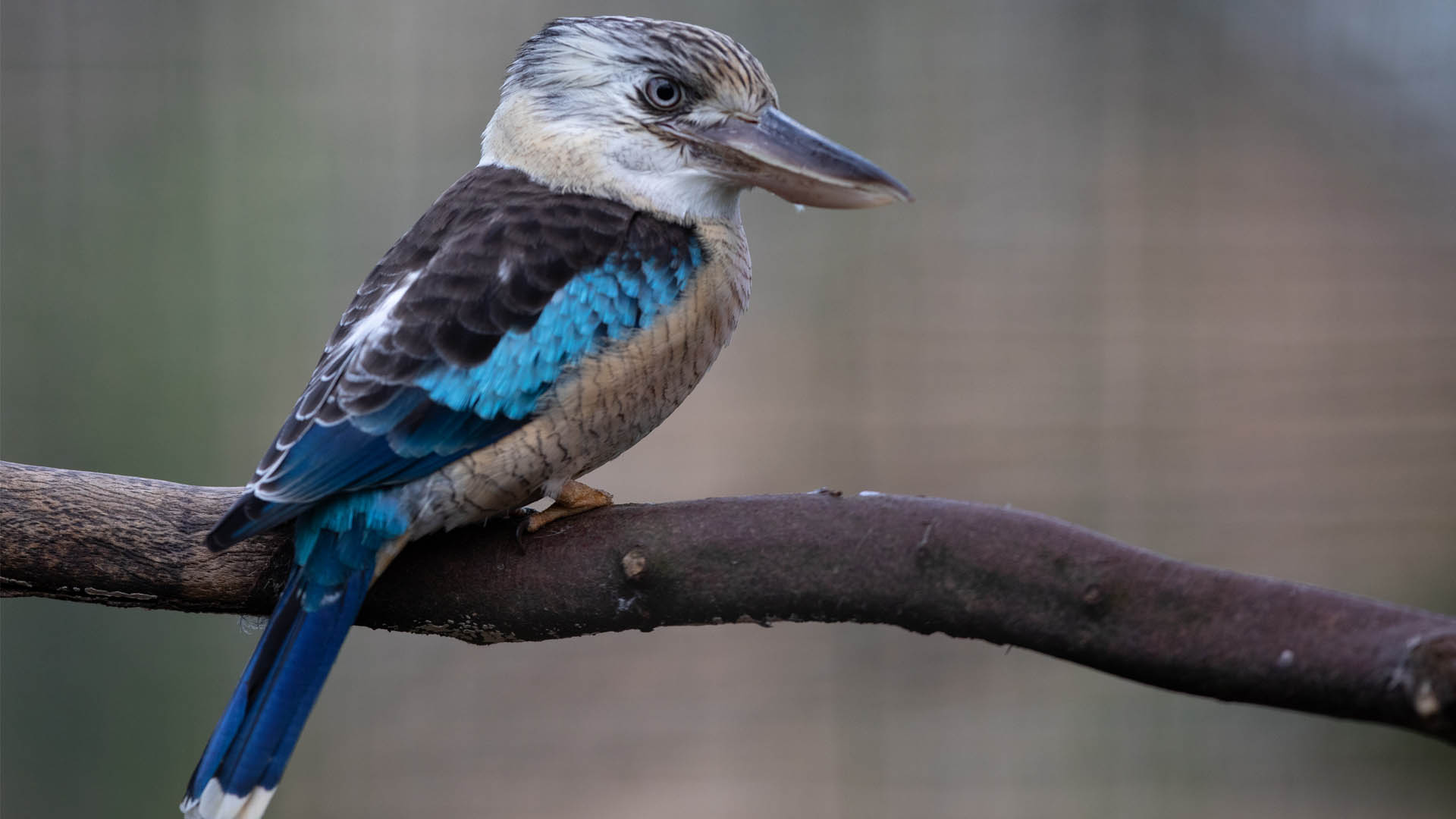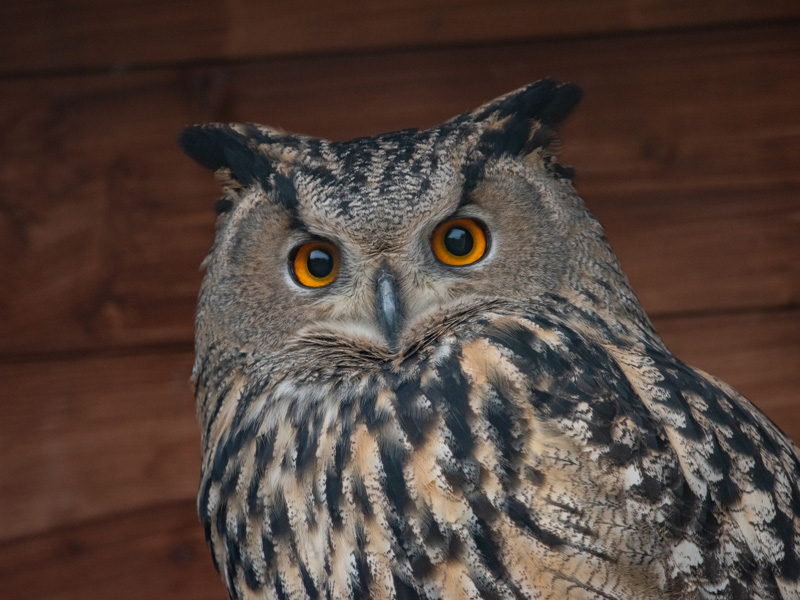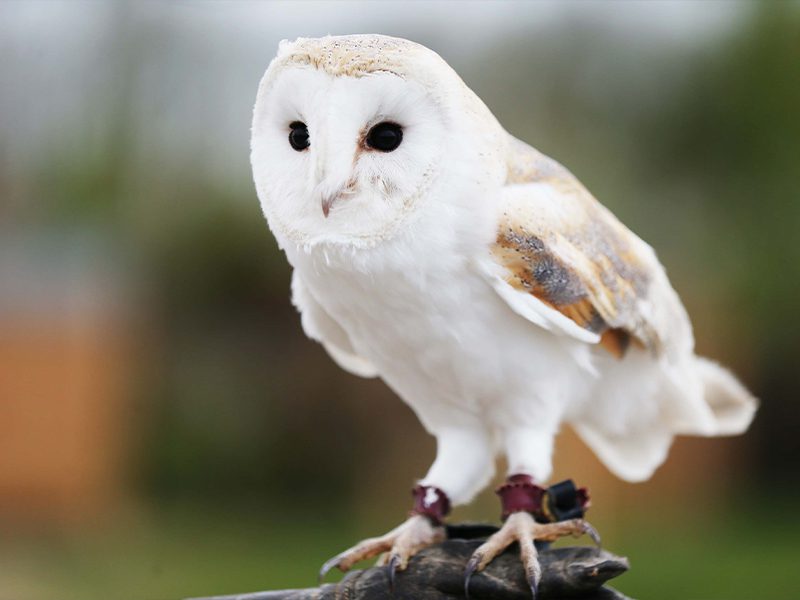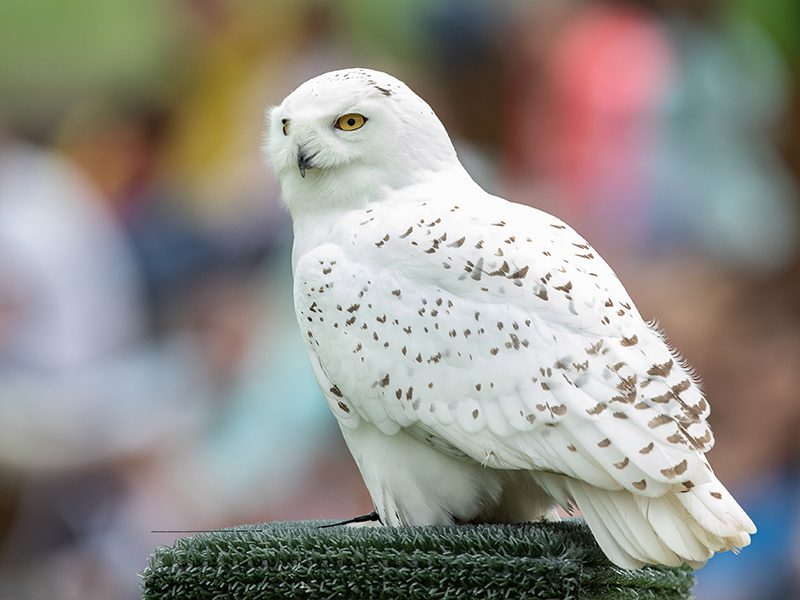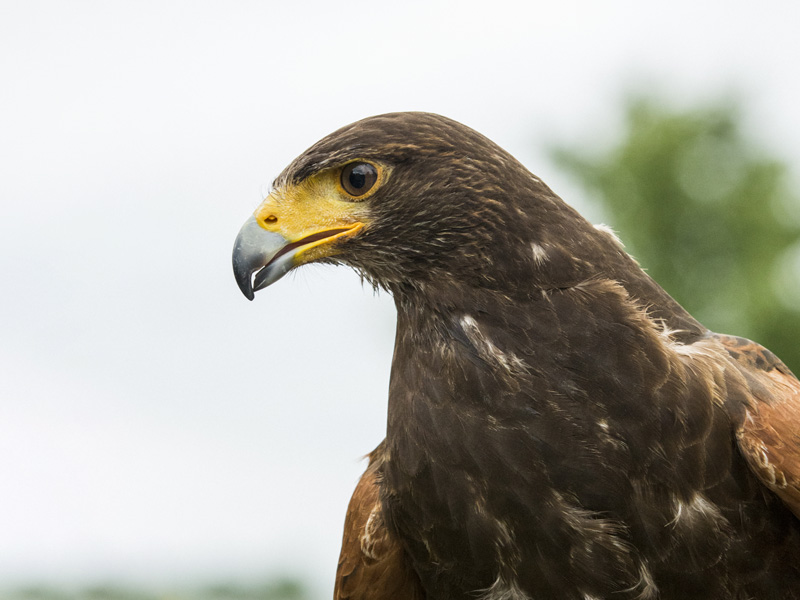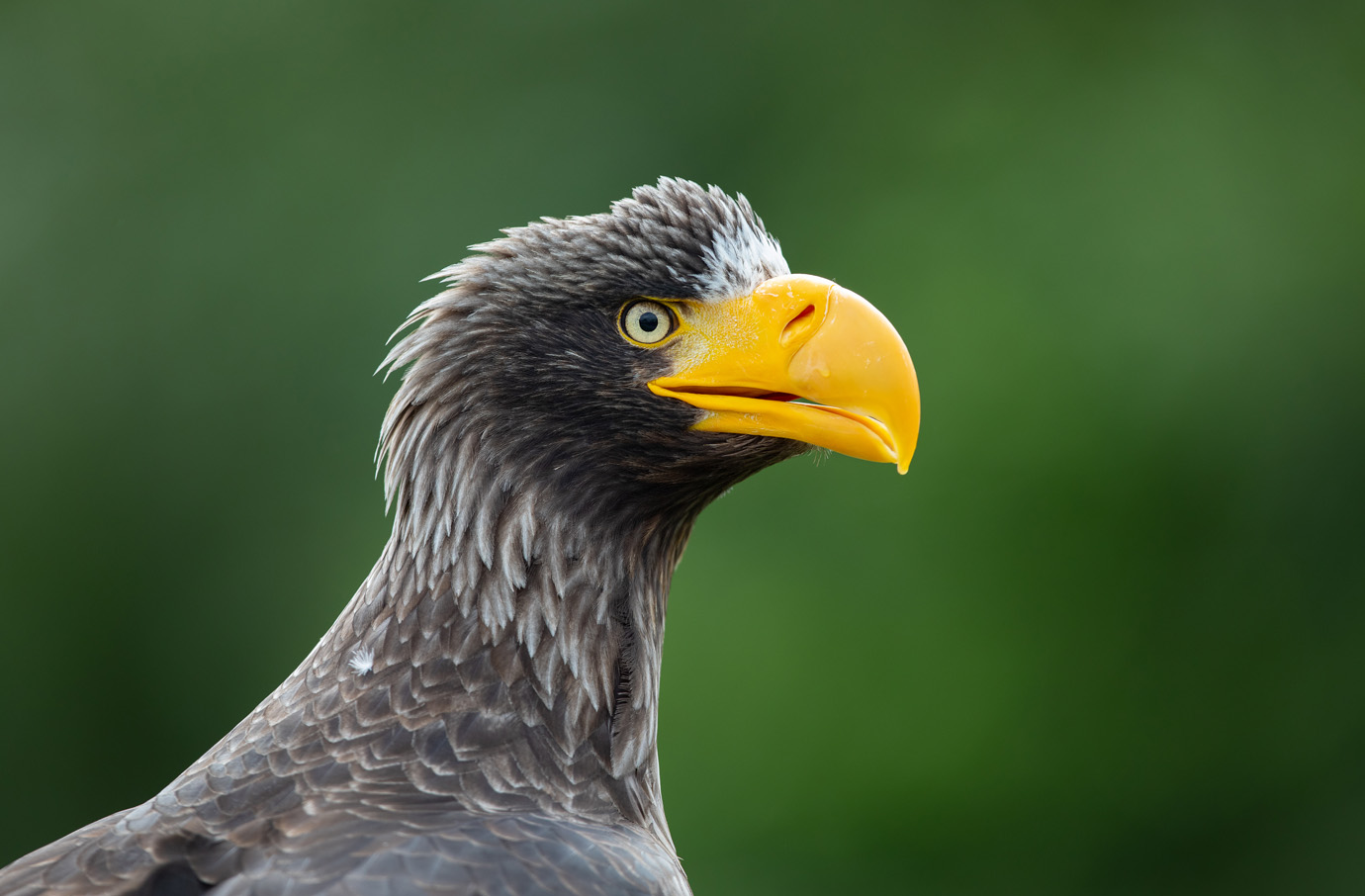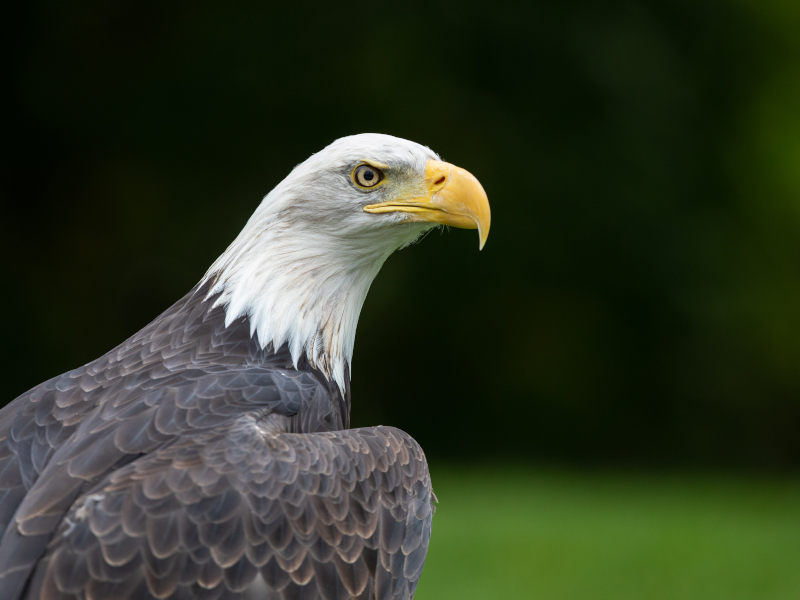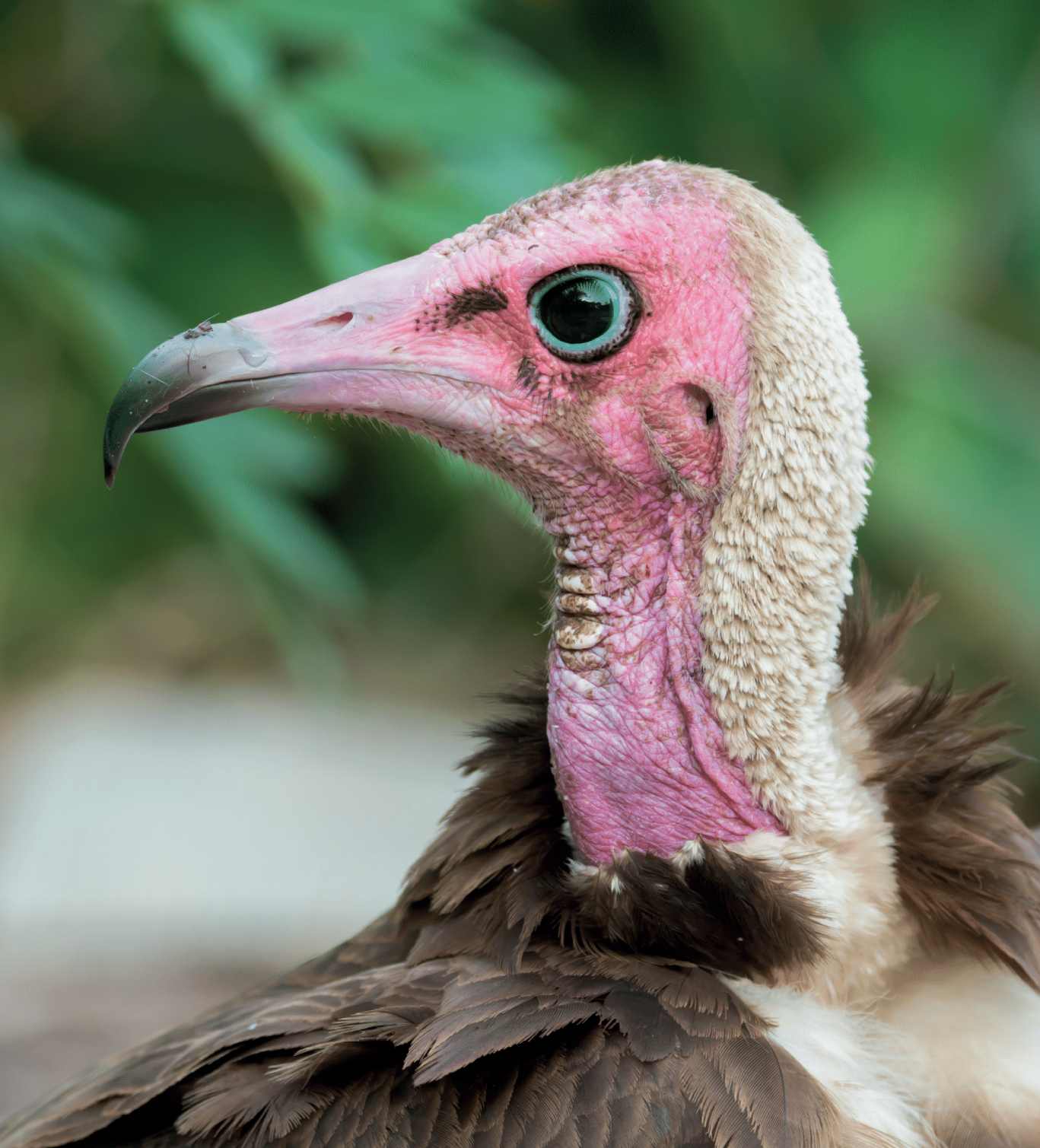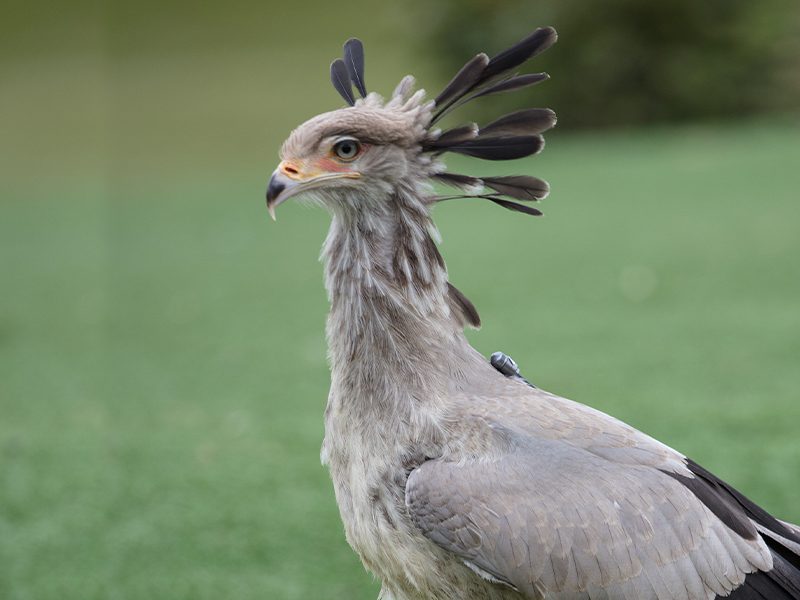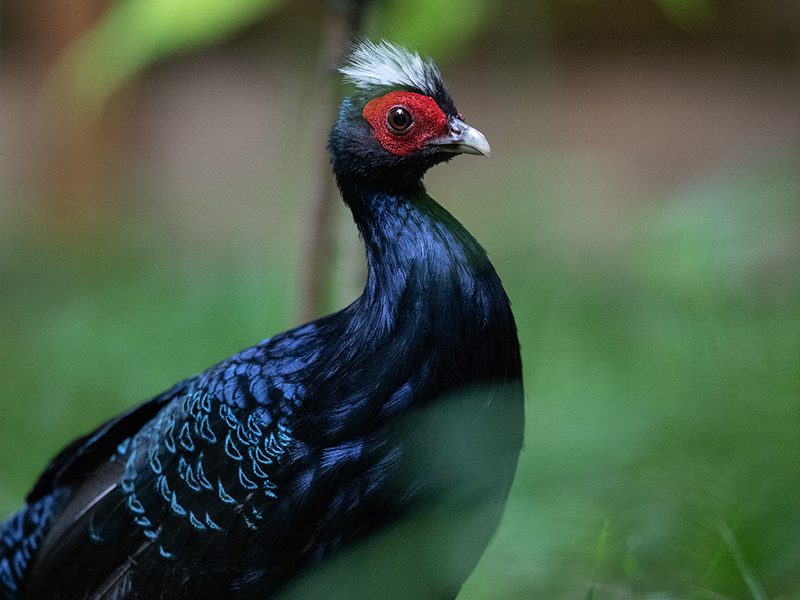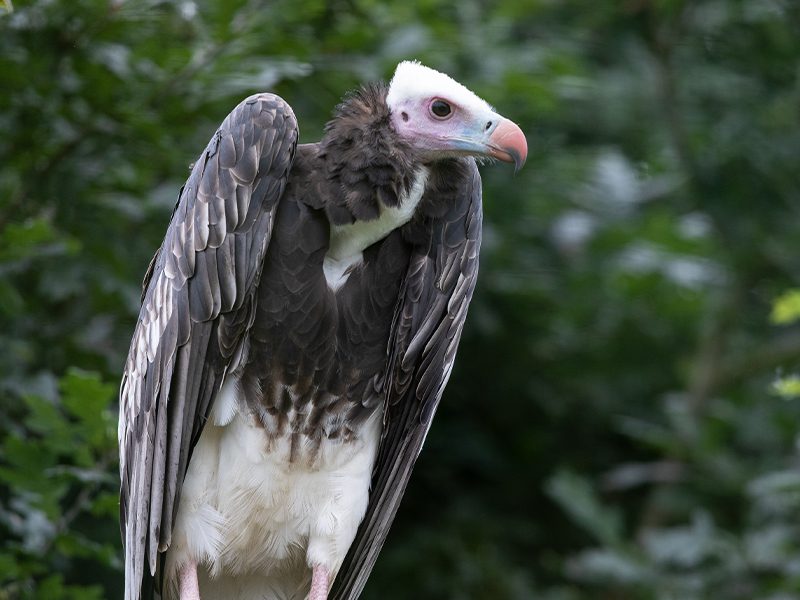The king vulture is one of the largest and most colourful of the new world vultures. They are mainly solitary and can be distinguished by their red, yellow, and bluish head and neck. Their eyes are white with red eye-rings and their body is buff above and white below.
The king vulture has a thick, strong beak which is well adapted for tearing and ripping meat as well as long, thick talons for holding on to carcasses.
They are a new world vulture, that will soar high in the sky is search of other species of vultures whom they will follow to a carcass.

Popular Searches
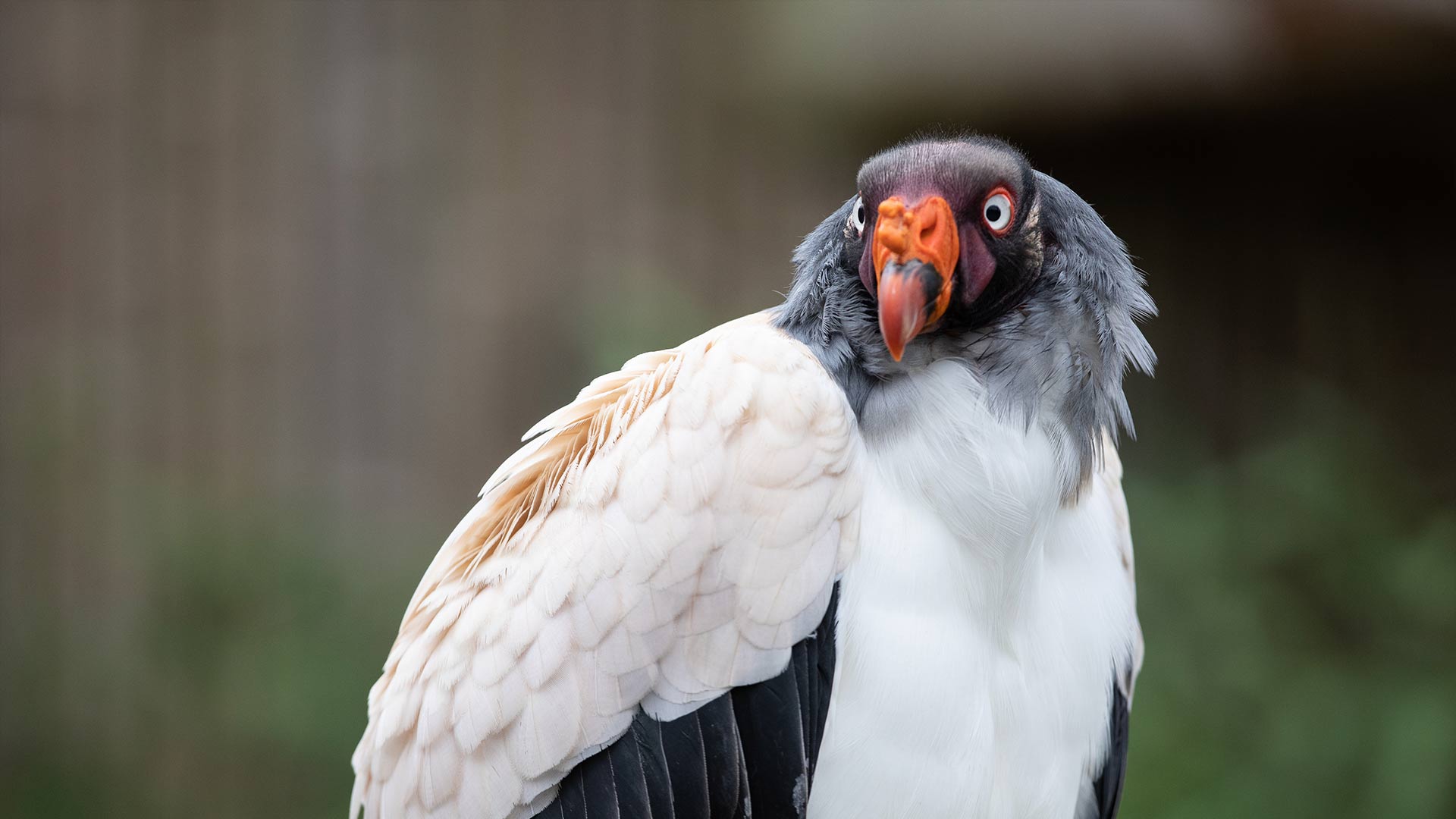
King Vulture
-
Introduction
-
Conservation
Kind vultures are classed as least concern.
Although they are found in a vast range, their population is declining due to threat issues such as habitat destruction.
Emerald Park conservation contribution:
EEP
King vultures are part of the EAZA Ex-situ Programme (EEP). This which means that their population is managed to ensure that there are heathy populations of animals within EAZA member zoos and for reintroduction in the future.
-
Habitat
King vultures are a new world vulture, that can be found in southern Mexico and throughout Central and South America to northern Argentina.
They inhabit lowland dry or humid tropical forests and wooded areas. They can also be found at foothills, grasslands and savannahs, generally away from human habitations.
-
Fun Facts
The king vulture is a scavenger, meaning they eat dead animals and so they carry out an essential role in the ecosystem. By eating rotting meat, they help to prevent the growth of pests and disease ensuring the ecosystem stays healthy.
King vultures do not build nests but will instead lay their eggs in the hollows of trees or under large fallen trees.
Both parents will share the incubation of the egg and will defend their nest ferociously.



